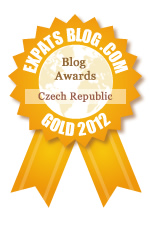 The Baltics are the three north European countries of Estonia, Latvia, and Lithuania. All three had been part of the Russian Empire from the 18th century but became independent following WWI. In 1918, all three declared independence and fought against Germans and Russian Bolsheviks. In 1920, independent Estonia, Latvia, and Lithuania were recognized.
The Baltics are the three north European countries of Estonia, Latvia, and Lithuania. All three had been part of the Russian Empire from the 18th century but became independent following WWI. In 1918, all three declared independence and fought against Germans and Russian Bolsheviks. In 1920, independent Estonia, Latvia, and Lithuania were recognized.In 1939, the Soviet Union forced the three counties to join mutual assistance pacts which permitted the Red Army to establish military bases on Baltic territory. Then in 1940, all three countries were invaded, had rigged elections held and were annexed as new Soviet Republics. Mass deportations to Siberia began in 1941.
©Nomedia Productions
There was massive civil resistance against the Soviet Union during the late 1980s. In 1989, two million people formed a human chain, called the Baltic Way, that stretched 600 km (373 miles) from Tallinn to Vilnius.
©NDT.TV
In 1991, the Soviet Union recognized the independence of the three Baltic countries. The last Soviet troops left in 1998.
 As of 2004, Estonia, Latvia, and Lithuania have joined the EU, Schengen and NATO. Estonia and Latvia have also joined the Eurozone.
As of 2004, Estonia, Latvia, and Lithuania have joined the EU, Schengen and NATO. Estonia and Latvia have also joined the Eurozone.
The Baltic countries currently have language and/or citizenship issues with the Russian populations. Estonian, Latvian, and Lithuanian are the respective official languages. After independence Lithuania granted citizenship to everyone automatically.
In Estonia and Latvia, however, citizenship was only granted if one could prove family ties prior to WWII. Otherwise, naturalized citizenship was offered provided successful completion of a language test.
©Russia Today
Those ethnic Russians who do not posses citizenship have non-citizen passports which don't entitle them to the same travel freedom as other EU citizens. They also have limited voting rights.
©Russia Today




























No comments:
Post a Comment